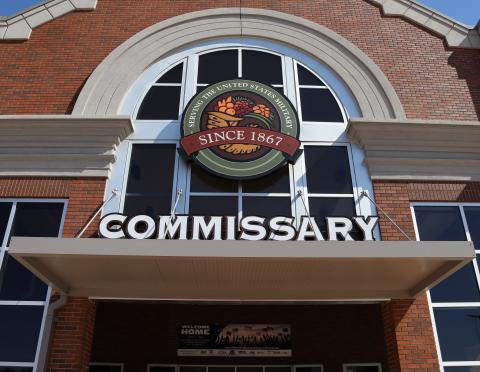BACK TO THE FUTURE: Commissaries observe 154-year legacy by boosting usage among eligible customers

FORT LEE, Va. – The commissary benefit was an important part of Bill Moore’s life growing up. He is the son of a combat veteran, so he remembers what a trip to the commissary meant to his family’s quality of life.
Today, as the director and CEO of the Defense Commissary Agency, Moore is celebrating the 154th birthday of the commissary benefit on July 1 by boosting its future usage.
“This is a benefit that I absolutely believe in – it definitely made a difference in my quality of life growing up,” he said. “We exist to enhance the quality of life of millions of commissary customers worldwide by providing congressionally mandated savings of 23.7 percent or more, and it’s my 100-percent goal to make sure we deliver that benefit out to every single eligible patron.”
The modern day commissary benefit dates back to July 1, 1867, when enlisted men were afforded the same shopping privileges at commissary subsistence stores that had been given to officers since 1825.
The majority of commissary subsistence stores, at the time, were housed in former abandoned warehouses and stables and were very small inside. In most of them, customers went inside and gave their list to the clerks behind the counter who filled the order for them and took payment.
Commissary subsistence stores eventually gave way to sales commissaries and sold goods at cost in order to provide them with food at affordable prices. The U.S. Army established commissaries at frontier posts throughout the 1800s.
In 1899, the first overseas commissary opened in Cuba. Another store opened in China in 1900 and in Panama in 1904. By World War I, the U.S. was operating commissary stores in France.
In 1909, the Naval Appropriations Act created the forerunner of the modern Navy commissary store. The Navy opened their first store under this act in 1910 in the Washington Navy Yard.
By the end of World War II, U.S. military commissaries operated worldwide and eventually existed on every continent except Antarctica in more than a thousand locations. In 1947, the U.S. Air Force began operating its own commissaries.
Each military branch continued to run their own commissaries until 1990, when Congress and the Department of Defense decided to consolidate the individual service commissary systems under one agency – the Defense Commissary Agency, which officially formed on Oct. 1, 1991.
Today, DeCA continues to serve the military and its families at 236 stores in 13 countries. The agency is working hard to boost the value of the commissary benefit through some of the following efforts:
- Partnering with the military exchanges
- Rolling out the online shopping/payment, curbside pickup program known as Commissary CLICK2GO
- Offering the Your Everyday Savings! (YES!) program, which lowers commissary pricing on trending products
- Providing Commissary Store Brands that offer quality private label products at significant savings
“The history of commissaries speaks of many innovations over the past 154 years of delivering this vital benefit,” Moore said. “And the evolution of the benefit continues with us today as we push out customer-focused initiatives to improve the quality of life of our patrons,” he said.
-DeCA-
About DeCA: The Defense Commissary Agency operates a worldwide chain of commissaries providing groceries to military personnel, retirees and their families in a safe and secure shopping environment. Commissaries provide a military benefit, saving authorized patrons thousands of dollars annually on their purchases compared to similar products at commercial retailers. The discounted prices include a 5-percent surcharge, which covers the costs of building new commissaries and modernizing existing ones. A core military family support element, and a valued part of military pay and benefits, commissaries contribute to family readiness, enhance the quality of life for America’s military and their families, and help recruit and retain the best and brightest men and women to serve their country.
